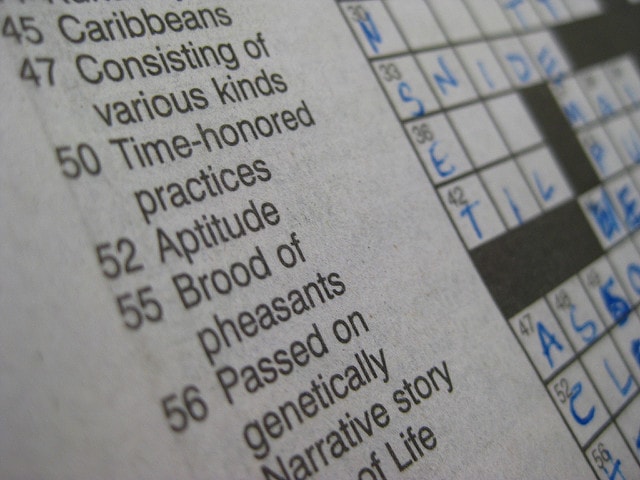 God prefers bad marriages to Sexual Sin; or at least that’s what I thought for twenty years.
God prefers bad marriages to Sexual Sin; or at least that’s what I thought for twenty years.
The very institution of marriage, they said, had redemptive powers that could sanctify two people’s relationship simply by the fact of their participation in it. By fulfilling your role, you could force the pieces of yourself and your spouse into congruence, your life into harmony with God’s Plan.
Sexual Sin, on the other hand, would irrevocably break you; it would poison your future; it would fester inside you; it would make you a second-rate home for the Holy Spirit and unfit to worship God or serve the church. Sure, you could repent, but you’d still be a patched-up wreck. If you really understood the gravity of your sin, you’d be repenting forever.
Maintaining this purity for the sake of my future husband and God Almighty would be, I understood, extremely difficult but ultimately rather simple. Reaching the goal consisted of two steps: controlling my own desires, and dating only people who shared all of my views on sexuality and boundaries.
These steps had the convenient side effect of neatly excising the other party in a dating relationship from the whole purity enterprise. He would either share my utter terror of Sexual Sin—so there would be no need to talk much about it—or he’d demonstrate his unsuitability by disrespecting me, violating my boundaries, burning Bibles, or some similarly blasphemous and repulsive behavior.
That is how I ended up an adult in a relationship where we could talk about philosophy, our prayer lives, and our hypothetical future marriage, but not about our daily make-out (OK, dry-humping) sessions.
That is how I carried secret shame for months over a kiss I neither consented to nor participated in.
That is how I hid, from every friend I ever had, the same secret they, without exception, were hiding from me: that I’d Gone Too Far and I could only hope to be forgiven.
That is how I nearly broke up with a man who reads history and watches soccer, who really listens to the homeless, really listens to me, works hard, loves Jesus, and just happened to not have heard about how Jesus is obsessed with everyone’s sex life. Who neither violated my boundaries nor blasphemed the Good Lord, but asked quite a few questions that I could only half answer. It made me grumpy; I had nothing without the Right Answers.
There is an ending to that story where I go on regarding my own body and everyone else’s with suspicion; where I go on clutching my Answers, placing them between me and everyone outside my tribe; where I keep my purity and my certainty and my fear, and I lose this man who insists we discuss these things, this petulant match of mine, my husband.
The threat of shame is the very definition of a self-fulfilling prophecy.
Now I have become a story gatherer. I look for quiet moments to read the stories. I think they deserve that—and I need the time and space to pray. Every ping of my inbox represents a person on a journey, one completely unique and as familiar as my own alien skin.
Some of us write raw; some of us stuff decades of pain into little summaries so neat, only our fellow travelers might recognize the landmarks and know what scars we bear.
Often the telling of the journey is a landmark of its own; for me, the hearing is another. It’s not easy or, exactly, fun to gather these tales, but I am full of gratitude for this inbox of healing hearts. They are not pretty stories, but they are our stories, and we are claiming them for ourselves. It is not the pretty stories that turn you fierce and brilliant, not the easy answer that draws you in to God.
There’s a rumor that the only alternative to purity culture is an orgiastic free-for-all, devoid of respect and unconcerned with human connection or human dignity.
I think that belief represents a lack of imagination that’s scandalous in a group of people so enamored with a book of stories and poems.
See, when I talk about escaping purity culture, I don’t mean I want to break free of all constraints on sexual behavior. In fact, I’m asking the church to place higher expectations on all of us.
I’m asking that we learn to pray, read, think, and navigate relationships for ourselves, instead of pretending the world fits into a neat framework that will do those things for us.
I’m asking for a conversation that respects teenagers, includes single people, takes unmarried couples seriously, and encourages and challenges married people.
We’ve hammered out weapons of fear where the world is begging to know how to love. We’ve continued to objectify instead of cultivating wonder at the beauty of others. We’ve repressed and hated bodies that God invites us to celebrate and enjoy. We could be the freedom-teachers, the wound-healers, the bearers of Good News; we could be so at home in our bodies, so careful of and open to one another, so creative in our uses of the wholesomeness that is sexuality lived in the light, that people would see Jesus in us. But we trade all that for a false sense of safety.
I don’t want a sexual ethic based on threats, lies, rigid roles or ideal scenarios. I want a theology of bodies full of wonder at the image of God; located entirely in the messy spaces of relationships with God, ourselves, and others; crystal-clear about responsibility and consent; with room for the mistakes and the surprising discoveries every single one of us has made.
I’m begging us to stop pushing young men and women into a daily-changing world armed only with a set of flimsy assumptions. We have got to get over ourselves and our embarrassment long enough to talk about how to make respectful and responsible sexual choices with a partner; how to enjoy your own sexuality without objectifying others; how to cultivate self-respect; how to encounter sexual diversity in love.
We have got to do our own work to understand where we’ve been shamed, abused, confused, lied to, or controlled.
I will not pass down my own shame to a single person more.
I will find in sexuality an invitation to the hard and holy work of being human, being a body that needs other bodies, and taking responsibility for my own place in the many ways our bodies interact. I will not fail to see the transcendent dwelling in the very yuckiest muck of our world.
I will be one calling out to others: you are a miracle of a place.
If we really believed that, maybe we could let go of purity, and trade it in, finally, for love.
The sex + shame series is on pause for a bit, but if you are still interested in contributing, do let me know. I expect to either sprinkle these in over the coming months or revive the series sometime in the future.
Whether you share with us or not, if you’ve had the thought of telling your story, I’d encourage you to do it. Taking a pen and writing it out can be so healing—even if it requires more of you than you expected.
The rest of the series is here.


